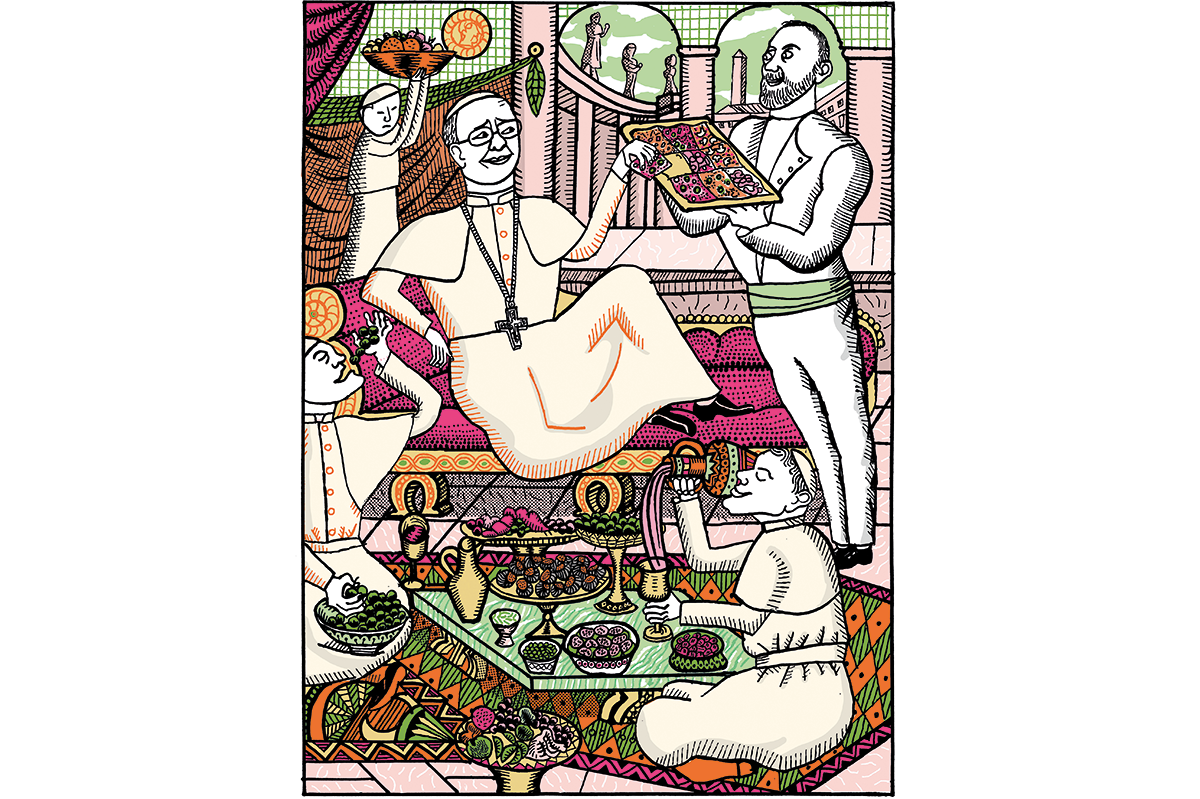Infamy! Infamy! That was my response to the TikTok trend about ancient Rome. Women asked their partners how often they thought about the Roman Empire. Many men admitted they thought about it every day; three times a day, said one. One confessed he was obsessed with “aqueducts and the fact that they had concrete that could harden.”
The scoundrels who came up with the idea should have asked women. Because they, too, are obsessed with ancient Rome.
‘I’ll be at a picnic when I look at my sandwich and suddenly ask: “Did you know the Romans had sandwiches?”’
Professor Mary Beard told me: “I must confess that I probably think about the Roman Empire about fifty times a day… but then it is what I do. But I don’t think about macho men in military kit or orating in togas. Sure, I do think about emperors. But I tend to think more about the women and the slaves and the ordinary. I think women do tend to see a bit beneath the surface.”
That’s the thing about the Roman Empire. It was so huge and impressive and lasted for so long that you can pick and choose which bit of it to daydream over.
The classicist Daisy Dunn says: “I think about the Roman Empire embarrassingly often — not just when I’m writing about it. I’ll be at something as English as a picnic when I look at my sandwich and suddenly ask my friends: ‘Did you know the Romans had sandwiches? And have you seen the paintings of pizza at Pompeii?’ The Roman Empire was far from paradise for most women, but the food was good, the poetry exciting, and public architecture was a source of pride, which is often more than can be said today.”
Men probably do think about the Roman Empire more than women. But only because until recently men — disgracefully — were more likely to study classics. At my prep school in the 1980s, the girls weren’t even allowed to learn Greek.
That’s all changed. Katie Walker, a Latin teacher, who studied classics at Westminster School and Cambridge, is just as obsessed with the Roman Empire as male classicists. “I’m rarely not thinking about the Roman Empire,” she says. “Today, I’ve had a conversation with my builder about how my cellar has a barrel-vaulted ceiling just like the Roman baths in Estepona; a chat with my GP uncle about the derivation of sacrum as in the sacrum bone; listened to the Gladiator theme tune in the car; and thought about Horace’s Epistle to Maecenas, where he says he’d give back everything to his patron if he needed to in order to be free. I’m thinking about whether to accept a job which pays well but might clip my wings.”
As for whether women think about it as much as men? “That’s so twentieth century! It’s not a question of gender but whether you understand what the Romans did for us,” Katie says.
Men are bound to fixate on the more butch aspects of the Romans: the centurions, the gladiators and, oh, those uniforms. Because of my interest in Latin, I think most days about the journey of certain Latin words into English.
Meanwhile, Justin Warshaw KC, a family law barrister, can’t stop thinking about the legal use of Latin. “I can’t remember the last day I didn’t think about some aspect of the Graeco-Roman world,” he says. “At work, I might be making an ex parte application, reading inter partes correspondence, looking at old law reports with their references to divorces a mensa et thoro, drafting dum casta clauses in agreements or remembering that decrees nisi were replaced by conditional orders last year. Then suddenly I’ll find myself thinking about the connection between words. Is there a link between sedition, with its Latin root related to seats, and στάσις, meaning a revolution in ancient Greek and bus stop in modern Greek?”
As St. Paul wrote in his First Epistle to the Corinthians: “When I was a child, I spoke as a child, I understood as a child, I thought as a child; but when I became a man, I put away childish things.” The same applies to Roman Empire obsessives and what they think about as they grow up.
David Horspool, history editor of the Times Literary Supplement, says: “I hit peak Romanitas in the days when I read Asterix religiously. I always thought those Romans were crazy. Nowadays, I like to spend just as much time wondering why, for instance, if Alexander the Great was listening to Aristotle, all those lessons on philosophy, nature and good character made him think, ‘I know, I’ll conquer the world?’”
All Roman Empire obsessives, whether male or female, can at least agree on one thing: the only way forwards is backwards.
This article was originally published in The Spectator’s UK magazine. Subscribe to the World edition here.

























